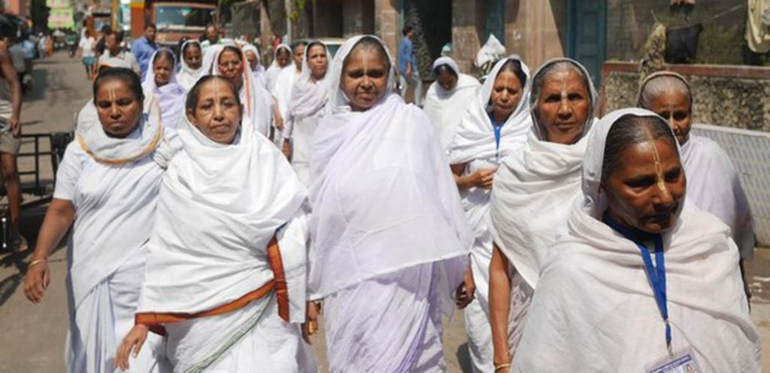- East Of Kailash, New Delhi-110065
- +91-11-26238444
- [email protected]
Widows

A widow is a woman whose spouse has died. A man whose spouse has died is a widower. The state of having lost one's spouse to death is termed widowhood or (occasionally) viduity. The adjective is widowed. The economic position of widows has been an important social issue in many societies. In societies in which the husband was typically the sole provider, his death could plunge his family into poverty. Glaring gender discrimination among Hindus exists in India over the centuries. Whereas a widower can remarry as many times as he likes, a widow cannot remarry irrespective of her age. There are more than 33 million widows in India, comprising about 8 per cent of the total female population of the country. Despite this, little is known about the actual living conditions of widows, about the quiet deprivations they experience on a daily basis. They are rarely mentioned in the literature on poverty, in public debates on social policy or even by the women's movement. This important volume of original essays and case studies is aimed at bringing about a better understanding of the social and economic conditions of widows, to focus attention on widowhood as a social problem and to promote public action and policies in support of widows in India. In India, many laws to protect women have been passed since independence. But it is the personal laws of each religious community that govern property rights and widowhood practices. The world knows of the practice of widow-burning ( sati ), but little of the horrors widows suffer within the confines of their relatives' homes, how they are treated by their communities, or their fate when abandoned to the temple towns to survive by begging and chanting prayers. There are approximately 20,000 widows in Vrindavan, the holy city; Varanasi; Mathura; and Haridwar. Common to both regions are interpretations of religious laws, customs, and traditions at the local level that take precedence over any modern state or international law. Widows in any case, especially the millions of illiterate widows living in rural areas, are mostly ignorant of the legal rights they have. In India, many laws to protect women have been passed since independence. But it is the personal laws of each religious community that govern property rights and widowhood practices. The world knows of the practice of widow-burning ( sati ), but little of the horrors widows suffer within the confines of their relatives' homes, how they are treated by their communities, or their fate when abandoned to the temple towns to survive by begging and chanting prayers. There are approximately 20,000 widows in Vrindavan, the holy city; Varanasi; Mathura; and Haridwar. Common to both regions are interpretations of religious laws, customs, and traditions at the local level that take precedence over any modern state or international law. Widows in any case, especially the millions of illiterate widows living in rural areas, are mostly ignorant of the legal rights they have. All human societies have sought ways to make death acceptable and to provide opportunities for expressing grief and showing respect to the dead person. In societies where the status of women is low, the mourning and burial rituals are inherently gendered. Rituals are used to exalt the position of the dead man, and his widow is expected to grieve openly and demonstrate the intensity of her feelings in formalized ways. These rituals, prevalent in India as well as among many ethnic groups in Africa, aim at exalting the status of the deceased husband, and they often incorporate the most humiliating, degrading, and life-threatening practices, which effectively punish her for her husband's death. In this above matter our organization have arranged financial aid to some widows in Delhi on 2003, for self depend vocational training Programme arranged 2006 and on 2009 some blankets.











